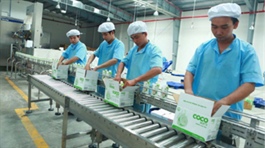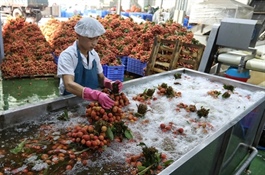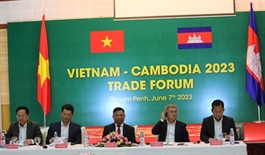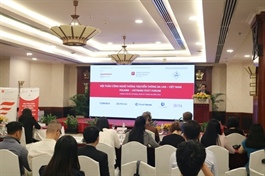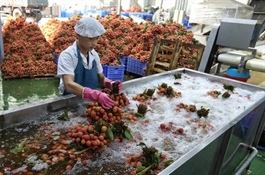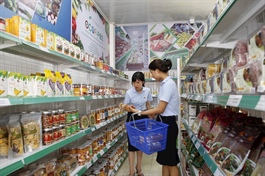HanoiPlasPrintPack Exhibition launched to boost local plastic industry development
HanoiPlasPrintPack Exhibition launched to boost local plastic industry development
In 2022, industry revenue exceeded US$25 billion, an increase of 5.7% year-over-year.
The 11th Hanoi International Plastics, Rubber, Printing and Packaging Industry Exhibition (HanoiPlasPrintPack), considered a platform to promote the development of the local plastics industry, is underway at the Hanoi International Exhibition Center (ICE) from June 8 to 11.
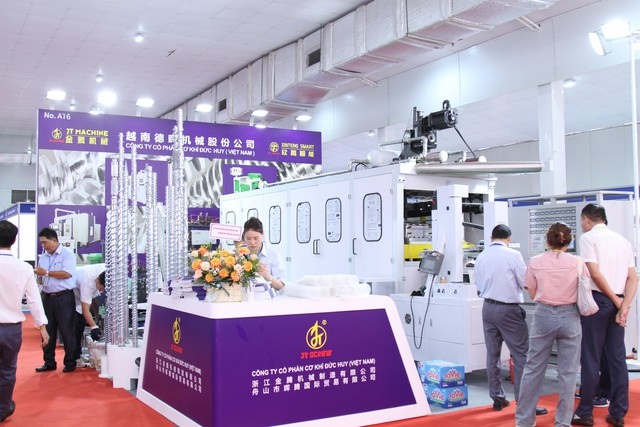
Overview of the event. Photo: VGP |
The annual Hanoi PlasPrintPack Fair, jointly organized by the Ministry of Industry and Trade and Yorkers Exhibition Service Vietnam, has returned after a long hiatus due to the Covid-19 pandemic.
Building on the success of Vietnamplas, held annually in Ho Chi Minh City and is the largest plastics industry exhibition in Vietnam, this event has attracted numerous domestic and international companies.
With over 340 booths representing 220 companies from countries such as Belgium, China, Hong Kong (China), India, Indonesia, Japan, Malaysia, the Philippines, Taiwan (China), Thailand, the United Kingdom, and Vietnam, the fair aims to facilitate industry cooperation.
Ho Duc Lam, Chairman of the Vietnam Plastics Association, said that the plastics industry had experienced significant growth, with an average annual growth rate of 10-12%. In 2022, the industry's revenue exceeded US$25 billion, an increase of 5.7% year-on-year.
Despite this growth, Vietnam's plastics industry is primarily considered a processing industry, as it relies heavily on imported raw materials, which have accounted for 70-80% of supplies for several years. Machinery and equipment are also mostly imported from major markets such as China, South Korea, Japan, Germany and Italy, he said.
Lam added that Vietnam's production capacity for plastic materials is improving significantly and is expected to meet about 50% of domestic demand in the near future. This progress is attributed to major suppliers such as the Hyosung Group of Companies, the SCG delegation from Thailand, and the Nghi Son Refinery and Petrochemical Plant.
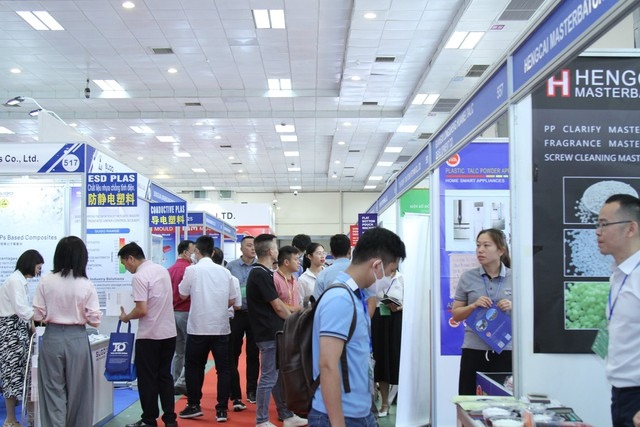
Visitors at the event. |
"Given the global trend of developing a circular economy, both internationally and in Vietnam, the Government is expected to implement policies that promote the collection, recycling, and reuse of materials to minimize the depletion of natural resources and reduce plastic waste in the environment, as outlined in the 2020 Law on Environmental Protection," Lam said.
These policies will encourage investment in new machinery and technology to meet market demands and create opportunities for equipment, machinery and new material suppliers in the future.
Hoang Quang Phong, Deputy Chairman of the Vietnam Chamber of Commerce and Industry (VCCI), acknowledged the key role of the domestic manufacturing industry, particularly in the plastics, packaging, and printing sectors. These industries, which are considered critical in the global market, require high-tech products, advanced production processes, and modern management practices to enhance competitiveness in the market.
Therefore, the HanoiPlasPrintPack exhibition serves as an important trade promotion event to help investors find partners and markets.
It also provides domestic manufacturers with opportunities to access advanced technologies, techniques and services, thereby enhancing the quality and competitiveness of Vietnamese industrial products while becoming deeply integrated into the international economy," Hoang added.
The HanoiPlasPrintPack exhibition, with the participation of nearly 130 exhibitors, serves as a platform that brings together prominent sectors in the plastics, rubber, printing, and packaging industries, with the primary goal of promoting industrial transformation and development in the northern region.
Currently, Vietnam's plastics industry consists of nearly 4,000 businesses nationwide, with the majority being small and medium-sized enterprises, which account for 90% of the sector. Plastic products are becoming increasingly ubiquitous in various aspects of life, serving various industries such as textiles, footwear, seafood, food processing, electronics, household appliances, healthcare, refrigeration, and more.






